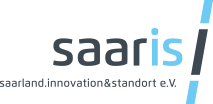Virtual Working Design in a Structurally Weak Region (ViSAAR)
Project Duration: May 2021 – July 2024
The Saarland is particularly affected by structural and demographic changes compared to the rest of Germany. Innovative and sustainable concepts are therefore crucially needed to improve and to increase the competitiveness and the attractiveness of this region as a business location. The focus here lies particularly on digitalisation and virtualisation of the working world as future-oriented structural change requires transferable solutions. To this end, for the individual applications of these new concepts in companies, human-centred and not purely technology-centred scenarios have to be developed and tested for their applicability.
to increase the competitiveness and the attractiveness of this region as a business location. The focus here lies particularly on digitalisation and virtualisation of the working world as future-oriented structural change requires transferable solutions. To this end, for the individual applications of these new concepts in companies, human-centred and not purely technology-centred scenarios have to be developed and tested for their applicability.
The aim of the ViSAAR research project is to prepare small and medium-sized enterprises (SMEs) of the structurally weak regions of the Saarland for the future through innovative organisational and digital solutions in the area of location-independent and remote working. Thus model implementation measures in virtual leadership, virtual collaboration, virtual mobility, virtual production and virtual coaching will be developed, tested and put into practice in seven different SMEs of the Saarland from the industrial and production sectors. In this way, the company-specific virtualisation projects will be scientifically accompanied and supported from the stocktaking to the conception to the testing and to the implementation. The ultimate goal is to develop transferable solutions for the region.
These digital transformation strategies that take equal account of people and machines will be developed and transferred into the region’s SMEs thanks to the labour science expertise of the Institute for Social Research and Social Economy e.V. (iso) and the saarland.innovation&standort e.V. (saaris) as well as the technology-centred digitalisation expertise of the AWS-Institut für digitale Produkte und Prozesse gGmbH (AWSi) (Institute for Digital Products and Processes gGmbH (AWSi)) and the Zentrum für Mechatronik und Automatisierungstechnik gGmbH (ZeMA) (Centre for Mechatronics and Automation Technology gGmbH (ZeMA)). The coordination and evaluation of the project will be conducted by the iso-Institute.
Project Duration:
May 2021 – April 2024
Funding Measure:
Project Lead:
Prof. Dr. Volker Hielscher
Cooperation Partners:
- saarland.innovation&standort e.V. (saaris)
- AWS-Institut für digitale Produkte und Prozesse gGmbH (AWSi)
- Zentrum für Mechatronik und Automatisierungstechnik gGmbH (ZeMA)
- LuWoTec Highspeedcutting GmbH
- Debusmann Kälte-Klima-Lufttechnik GmbH
- Greencells GmbH
- NetComSoulutions GmbH
- WALOR Stahlbau und Montage GmbH
- Woll Maschinenbau GmbH
- ISL Gruppe GmbH
Further Information:
Flyer:
ViSAAR-3Fold Flyer_0123
ViSAAR - Project Homepage & Facebook:
https://visaar.de/
https://www.facebook.com/Visaar-109598658062266/
The latest report as of July 14, 2021 (from 1:10 minutes):
https://www.ardmediathek.de/video/aktueller-bericht/aktueller-bericht-14-07-2021/sr-fernsehen/Y3JpZDovL3NyLW9ubGluZS5kZS9BQl8xMDQ5MjM/
Saarländischer Rundfunk (Saarland Radio):
https://www.sr-mediathek.de/index.php?seite=7&id=105046
Tagesschau.de (German Television Broadcast):
https://www.tagesschau.de/wirtschaft/technologie/homeoffice-industrie-101.html
Publications:
Hielscher, Volker (2022): Virtuelle Arbeitsgestaltung. In: Karriereführer Ingenieure, Ausgabe 01/2022, S. 24-25. [Download]
Schmidt, Daniela; Kuhn, Dominik; Becker, Daniel; Müller, Rainer; Bierwirth, Kathrin; Hielscher, Volker (2023): Menschzentrierte Digitalisierung im Sondermaschinenbau: Ein Fallbeispiel zur Transformation des analogen Informationsflusses. In: Zeitschrift für wirtschaftlichen Fabrikbetrieb, vol. 118, no. 10, 2023, pp. 717-722. https://doi.org/10.1515/zwf-2023-1128











